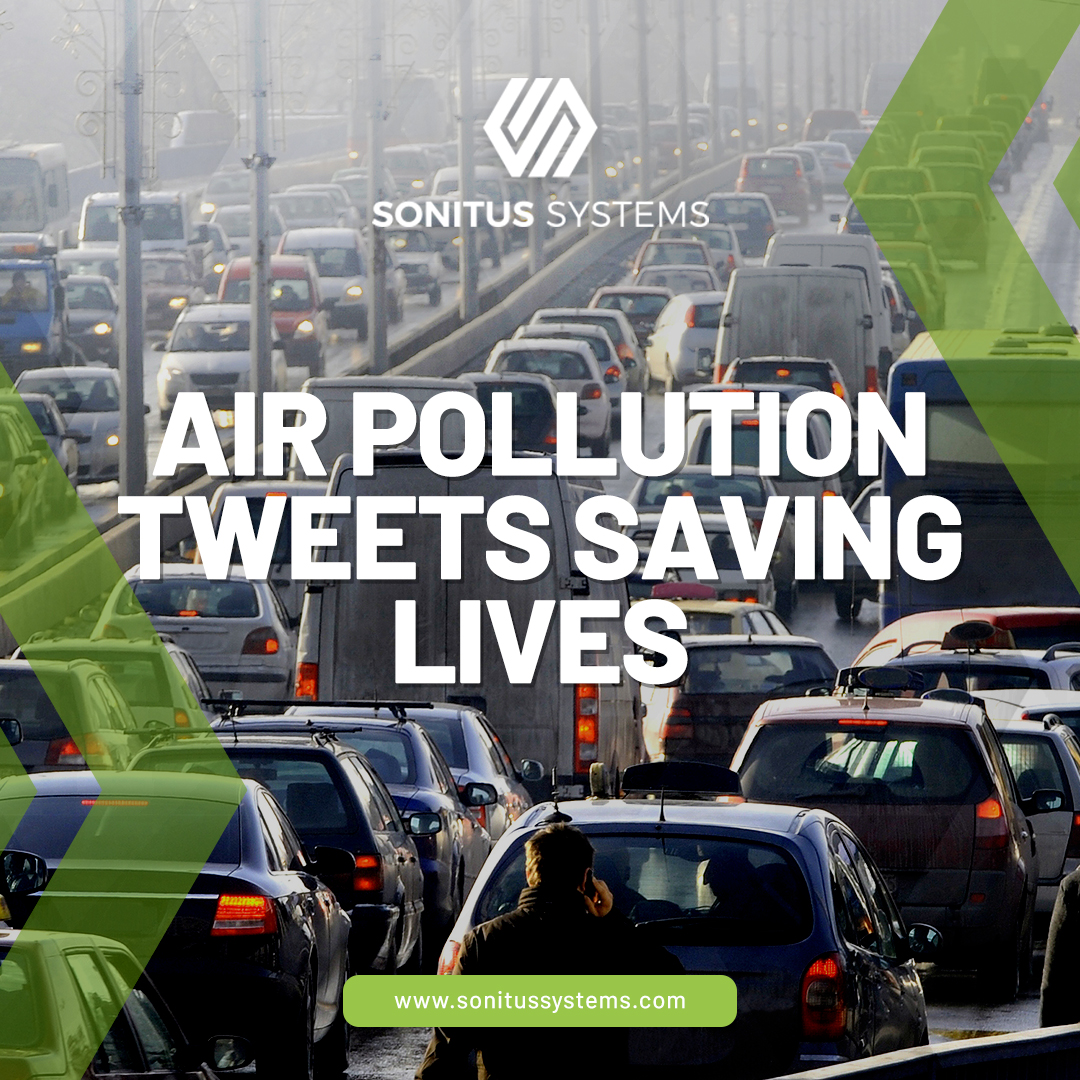“Sharing credible air quality information can highlight this issue and have huge health and economic benefits that far outweigh the costs of the monitoring technology”
‘Air Pollution Tweets from U.S. Embassies Saving Lives’. This is certainly a bold headline, however, it is one that we know to be true. When we read the article accompanying this headline on the Yale website digest, we were struck by the similarities between the work of the U.S. Embassy in Beijing, and that of the Sonitus Systems team in Ireland and across the globe.
The above story focuses on the work of the U.S. Embassy in Beijing, tweeting air quality readings of pollution monitoring, similar to the real-time readings that are tweeted daily in Ireland by https://airquality.ie/, which is an Environmental Protection Agency (EPA) initiative developed and maintained by Sonitus Systems.
By tweeting real-time local pollution data, U.S. embassies drive awareness of – and measurable improvements in – local air quality. This programme of air quality monitoring and public reporting began in the Chinese capital back in 2008 and has now spread well beyond China. In fact, by 2020, U.S. embassies in 38 developing countries were regularly live-tweeting air quality readings and providing real-time updates on air quality and pollution levels for cities in those countries.
Researchers from Carnegie Mellon University recently examined 36 of the 38 countries in order to measure and understand the impact, if any, the regular tweets had on human health locally.
As part of this research, the team gathered satellite data on air quality and pollution levels from before and after the embassies began tweeting these readings, and they compared the results with data from developing countries that had not been subject to both air quality monitoring and public communication. Interestingly, the research team found that “by drawing public attention to pollution, the tweets led to a measurable reduction in airborne particulate matter”. The researchers went further to estimate that, on average, improvements in air quality saved 303 lives in 2019 (according to findings published in the Proceedings of the National Academy of Science).
“Poor air quality is a leading cause of premature death worldwide, responsible for one out of every nine deaths… Sharing credible air quality information can highlight this issue and have huge health and economic benefits that far outweigh the costs of the monitoring technology…”, according to Akshaya Jha, economist at Carnegie Mellon University and lead author of the study.
Across Europe
The European Environment Agency estimates that poor air quality contributes to 1,300 deaths in Ireland each year. Over the past decade, the Sonitus Systems’ team have worked closely with the EPA on the creation and maintenance of https://airquality.ie/. This website empowers residents and visitors to understand the quality of the air locally, which helps people to make informed decisions to protect their health and that of their families.
For further information on how European cities are tackling air quality issues, click here: https://www.sonitussystems.com/insights/tackling-air-quality-and-noise-pollution-across-european-cities/
The Carnegie Mellon study serves to highlight the importance of raising awareness of air quality locally and of giving people the information needed to make the right decisions for their health and that of their family or teams. Have you checked the quality of your local air today?
Sonitus Systems offers both the hardware and software for a range of environmental parameters on a continual basis, with real-time information available through our Sonitus Cloud dashboard. For more details on our indoor and outdoor noise and air quality monitoring products and services, please contact the team at https://www.sonitussystems.com/contact-us
